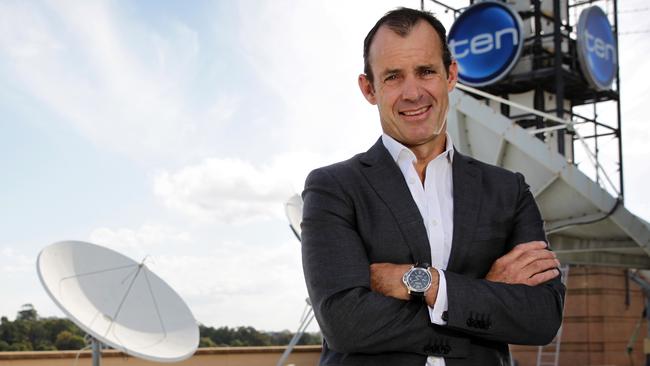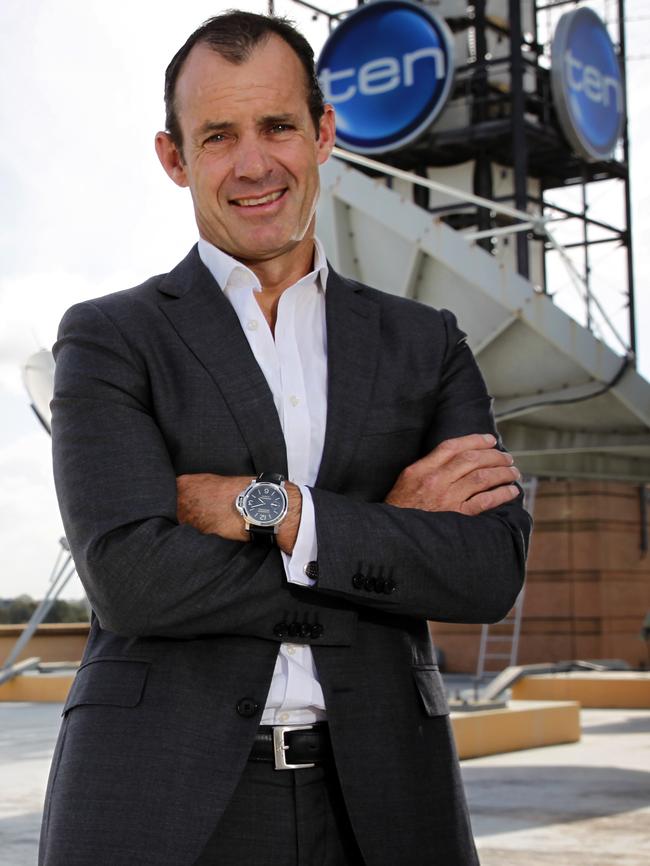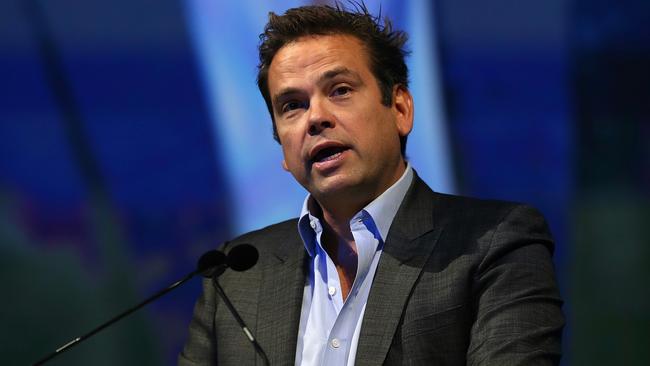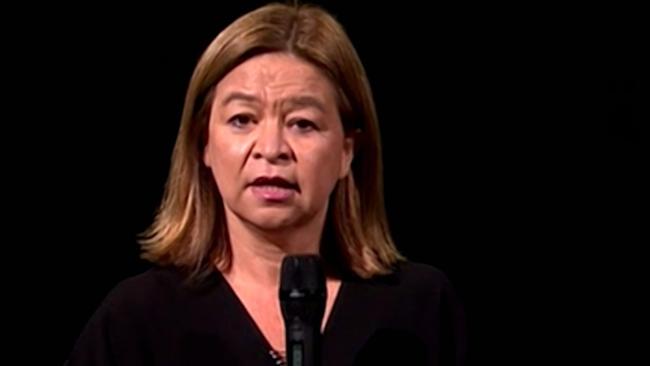Terry McCrann: Now playing: Ten’s pivotal poker game
THE ‘can Ten survive?’ question is actually two questions. And they need to be thought of in two different time frames, writes Terry McCrann.

Terry McCrann
Don't miss out on the headlines from Terry McCrann. Followed categories will be added to My News.
THE ‘can Ten survive?’ question is actually two questions. And they need to be thought of in two different time frames.
Question one is whether it can avoid going into administration, which would likely make its already near-worthless shares worth (even) less.
REAL-LIFE DRAMA AS TEN CONFRONTS ITS MORTALITY
The answer to that lies in a delicate and complicated game of clifftop poker, being played out this week.
Question two is whether there is a survivable place for a third free-to-air commercial network. The answer to that is arguably yes in the short-to-medium term, but much more problematic when you go out three to five years and longer.
Its last financials, for the six months to February, captured this rather crazy mix. In the six months revenue of $341 million was, just, exceeded by expenses of $344 million. Unaddressed and indeed unfixed, that is not a survivable equation for any company. It also points to its shares having a value between very little and worthless.
The single biggest cost problem is the $150 million-a-year contracts it has with US film and TV groups (associated Murdoch company) 21st Century Fox and CBS to supply it with programming.
Assuming that cost was pruneable — in everyone’s interests — Ten could achieve a viable cashflow dynamic. But then there’s the balance sheet.

On the surface this shouldn’t be a problem. At the balance date Ten had net debt of just $30 million — not much more than an enthusiastic property speculator might have.
But that is part of a $200 million facility from the CBA, which only exists because it is guaranteed by Ten’s biggest shareholders, Lachlan Murdoch, Bruce Gordon and James Packer.
They’ve told Ten they won’t ‘rollover’ the guarantee to a new facility at the end of the year. Without that guarantee there’d be no debt facility.
So a debt as little as $30 million could force Ten into administration, even though in any sort of fire sale, there are sufficient assets to pay all liabilities. Assuming that is, that the ‘third network licence’ has a market realisable value.
SO to the poker game between the loan-backing major holders, other shareholders more broadly, the two Hollywood suppliers and the company’s board, with the CBA as a ‘kibitzer.’
While in broad terms administration really wouldn’t be in everyone’s best interests — it triggers obligations, freezes positions, and opens new operational and liability dynamics; it could actually deliver advantages to individual players.
The most obvious example would be a recapitalisation which delivered control and even majority ownership to the major holders in the context of a massive reduction in Ten’s contractual obligations.
Making it more complicated, but also generating value to be reaped are the media ownership rules and the anti-siphoning which convey a monetisable asset even for Ten as the weakest commercial network.
And of course the fact of the timing: that this is happening just as the government has proposed to (modestly) reform the rules.

This all goes to the bigger question: does even the Ten that has been ‘recommissioned,’ either via an administration process or to pre-empt that, have a survivable far less prosperous future?
In the short-to-medium term the answer is clearly yes. The comparison and contrast with Fairfax is most instructive.
Fairfax has two bidders prepared to pay close to $3 billion. But neither of them really wants to buy the actual media part of the business; the focus is entirely on its Domain real estate advertising where the revenue dollars are not a byproduct of the media-consuming eyeballs.
Exactly the opposite is the case with Ten. Its ratings are the basis of its advertising revenue: they can’t be detached.
So in short, as long as Ten can gather sufficient eyeballs, it will reap advertising revenue; provided it can open a — positive — gap between that revenue and its programming costs, it has a survivable and even profitable short-term future.
Indeed, in its latest half-year Ten wasn’t doing half bad in gathering eyeballs, although, worryingly, they appear to have dropped away since.
The reason for the ‘short-term’ qualification is of course the way smartphones and Netflix, etc streaming is chipping away at the eyeballs on FTA-TV. The bigger disruption context is also potent; with all the major advertisers facing similar audience/customer and margin erosions.
This is playing out in what will be an accelerating decline in FTA-TV ad revenues. Network advertising in the June half last year had hardly budged from the level of nearly a decade ago, in the June 2007 half.

ABC NOW EATING FTA — TV LUNCH
THE role of the government owned and funded ABC in the dynamics and profitability of the three commercial FTA-TV networks has flipped 180 degrees.
In the “good old days” the ABC helped underwrite their licences to print money. Now it is undermining their very viability.
Back before smartphones and fast broadband, the three FTA networks were able to pocket up to 95 per cent of the TV-viewing advertising dollars from perhaps as little as 65 per cent of the eyeballs — thanks mostly to the ABC and its advertising-free “purity” for its 15-20 per cent of the eyeballs.
Now though, the eyeballs the ABC gets with its “free” $1 billion-plus of taxpayer money is eating deep into the FTA revenue base.



